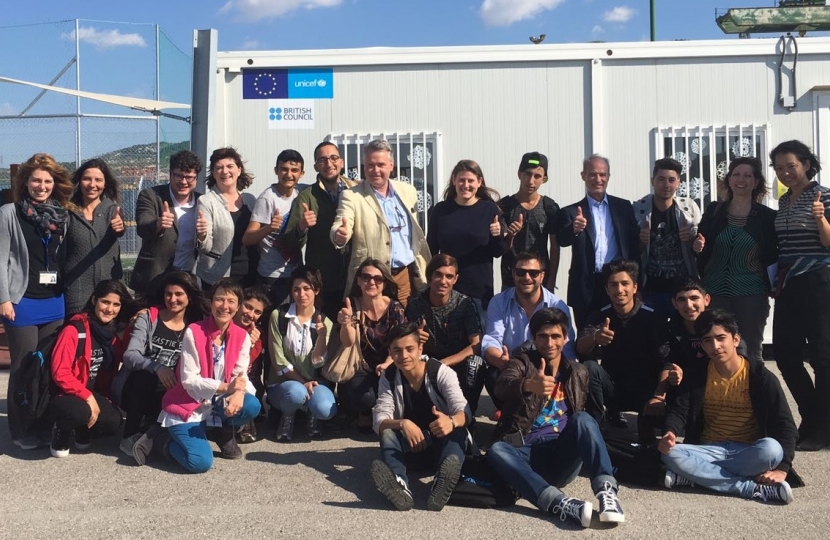
Last week we, together with colleagues from across the parties, tabled an amendment to the EU (Withdrawal) Bill.
This amendment will ensure Britain remains a positive force in the world and able to help the most vulnerable children, fleeing war and danger, get to the safety of their families in the UK, an issue we saw first-hand with Unicef UK this year.
We both took different views on the referendum that led to this Bill but we are in complete agreement that the future of Britain in or out of Europe must be one in which we can do the right thing for children swept up in the global refugee crisis.
Due to its need to be a two-way agreement, the ‘Dublin’ system for refugee family reunion will not be preserved in the current Bill despite its intention to keep all European regulation.
Outside of Dublin, the UK’s own refugee family reunion rules currently don’t recognise any other concept of family beyond parents – grandparents, elder siblings, uncles, aunts, are all, absurdly, not family.
We think most sensible people would recognise a big sister as family, especially if in doing so it would get a child to safety and out of danger. However, without the Dublin scheme only our domestic system will operate.
For children who have lost their parents and their home, their surviving close family is the best hope for a future they have and we can’t allow for them to lose this chance. Our amendment would fix our rules in this way.
A proper response to the migration crisis needs to be systematic and sustainable and the family reunion system is an important part of this.
While the UK’s foreign policy, development and aid is critical in ensuring that these children do not have a situation they need to flee home in the first place, we still have a role to play in ensuring legal routes exist for those children for whom it is in their best interest to come to the UK.
Too often, the reality is that refugee children have found the only way they can get across Europe is with criminals who have far from charitable interests in them.
Children who have fled war in Syria or escaped being forced to be child soldiers in Eritrea need help and safety but instead only find delays and bureaucracy in the official system.
We need the rule of law to be more effective than any criminal network. That is why we cannot afford to lose this safe and legal route and that is why we have tabled our amendment.
We saw first-hand the reality of why this is needed earlier in the year when we visited Greece with Unicef.
An overwhelmed Greek civil service were unable to co-operate with the Dubs scheme the UK government had put in place – their limited resources meant Greek officials could not justify putting specialists on a small one-off scheme with limited numbers.
He even said how he hopes to fix it in a way that grows the British tradition of tolerance and generosity.
This amendment is an opportunity for the Government to do just that and ensure we live up to our credentials as a truly Global Britain.
Currently children are forced to make a dangerous journey into Europe before they can start the family reunion process – this would not be the case if the reunion process occurred under our own rules.
As a result, the change in our amendment would mark a bad day indeed for the traffickers of children.
This amendment sends a clear signal as to what a truly Global Britain means for the future – a tolerant, compassionate and strong nation, proudly in the world and we call on colleagues to support us.
My article with Nick Morgan MP, as published in the Telegraph: http://www.telegraph.co.uk/news/2017/10/18/time-show-brexit-doesnt-mean-less-refugee-children/
